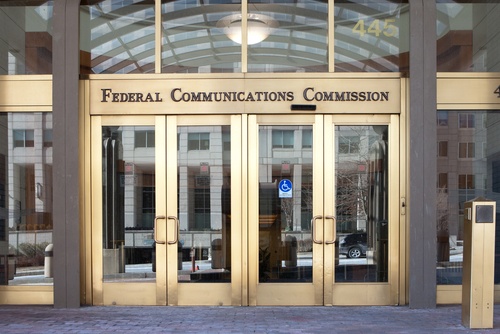Key Takeaways
- Senator Rand Paul condemned FCC involvement in Disney’s decision about Jimmy Kimmel.
- FCC Chair Brendan Carr warned Disney to pull Kimmel or face further scrutiny.
- Paul argues free speech should stay clear of government and FCC meddling.
- He vows to fight any future attempts at FCC involvement in broadcast content.
Senator Rand Paul stepped into a heated media dispute to defend free speech. He criticized the Federal Communications Commission involvement in Disney’s late-night programming. Paul said the FCC should not press a TV network to fire or silence a host. His strong words came after FCC Chair Brendan Carr targeted Jimmy Kimmel over a controversial shooting joke.
Background of the Dispute
Last month, comedian Jimmy Kimmel made a late-night joke about a shooting at a political event. His remarks sparked outrage among some viewers who felt the joke was in bad taste. In response, FCC Chair Brendan Carr publicly warned Disney to discipline Kimmel. He said, “We can do this the easy way or the hard way. These companies can find ways to change conduct to take action on Kimmel, or there’s going to be additional work for the FCC ahead.”
Carr’s warning implied the FCC could open an inquiry or impose penalties if Disney did not act. As a result, Disney faced pressure to decide between keeping Kimmel on air or risking regulatory hassles. This move alarmed free speech advocates, who saw government pressure on entertainment content as a dangerous path.
What FCC Involvement Means for Speech
When the FCC involvement extends into programming choices, it can chill open discussion. Broadcasters might avoid certain topics out of fear of fines or investigations. In turn, audiences lose access to diverse opinions and comedy that pushes boundaries. Thus, regulatory threats risk turning creative risk-taking into a safe, bland box.
Moreover, anyone who criticizes government action can face official backlash. If regulators brand content as unacceptable, networks may censor themselves. Consequently, viewers miss out on honest commentary and satire. Senator Paul argued that such shifts harm free expression and democratic discourse.
Why Paul Calls It Inappropriate
Senator Paul labeled the FCC involvement as “absolutely inappropriate.” He pointed out that regulators have no business telling private companies which employees to keep. Furthermore, he noted that people have the right to speak, but not the right to a job. Paul explained, “You can say despicable things, and face job loss, but the government should not intervene.”
He stressed that the FCC was wrong to weigh in on Kimmel’s job security. In his view, audience reactions and network decisions, not government actions, should determine a host’s career. Paul plans to oppose any future legislation that would expand FCC power over speech.
Potential Impact on Media
If regulators increasingly press networks, the media landscape could shrink. Hosts may avoid tough subjects, fearing fines or investigations. Creative teams might self-censor scripts that satirize political figures. Over time, late-night shows could lose their edge and purpose.
In addition, news commentary on public figures might become bland. Producers could steer clear of controversy to protect broadcast licenses. As a result, viewers would see less frank debate on vital issues. Senator Paul warned that an emboldened FCC could trigger a slippery slope of censorship.
A Broader Fight Over Free Speech
Senator Paul’s remarks echo long-standing debates over government reach. He emphasized that private speech consequences, like job loss, are separate from government punishment. When both mix, he said, democracy suffers. He intends to introduce measures to block any expansion of FCC involvement in content oversight.
In defending Jimmy Kimmel, Paul also aimed to curb future regulatory overreach. He argued that political disagreement should not become a matter for agencies. Instead, he believes the marketplace of ideas and public opinion should sort disputes.
What Comes Next?
The FCC has not signaled a retreat from its warning. Meanwhile, Disney must weigh public response and potential regulatory steps. Senator Paul’s challenge may gain support from other lawmakers wary of agency overreach. In coming weeks, both sides will likely remain in the spotlight.
Overall, the debate highlights growing tensions between free expression and government regulation. Moreover, it shows how media, politics, and regulatory bodies can collide. As this fight continues, viewers will watch closely to see who sets the rules for broadcast speech.
Frequently Asked Questions
What led Senator Paul to speak out on this issue?
He reacted after the FCC involvement in pressuring Disney to discipline Jimmy Kimmel. He viewed it as an overstep against free speech and private business decisions.
Can the FCC actually force Disney to remove a host?
The FCC cannot directly fire hosts. However, it can open investigations or issue fines that risk a network’s license, creating pressure to comply.
Why is free speech at stake in this dispute?
Critics say government threats over content can chill open discussion and satire. They fear broadcasters will self-censor to avoid penalties.
What might happen if the FCC gains more power over programming?
Networks might avoid controversial topics, leading to less diverse viewpoints. Creative expression could shrink under the weight of potential fines or investigations.
